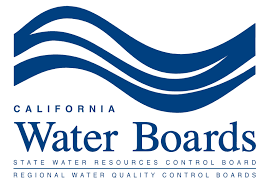
James Nachbaur is the Director of the Office of Research, Planning, and Performance within California State's Water Resources Control Board, which runs and supports short-term and long-term efforts on a variety of topics, including climate change, water use efficiency, emergency management, and economic analysis. He has been involved with environmental policy and clean energy policy on both the federal and state levels. ESAL interviewed James about the Office of Research, Planning, and Performance's recent accomplishments, future plans, and the steps that brought him to this point in his policy career.
This interview has been edited for clarity and length.
MFD: What is the California state's Water Resources Control Board? And your title is the Director of Research, Planning, and Performance; what does that entail?
Nachbaur: The State Water Resources Control Board (Water Board) has big roles in California's water management. The Water board oversees nine regional water quality control boards across the state. Collectively, the boards preserve, enhance, restore and allocate water to protect public health and the environment.
Within the Water Board, I lead a special projects team that coordinates some of the Board’s climate change adaptation work, among other things. We also have a role in the state's water use efficiency and water conservation. The team, for example, worked on a major new policy to increase urban water use efficiency; it shifts how the state engages with local water agencies. The team also implements several cross-cutting functions, such as staff training and development through our training services program and the economic analysis of policy proposals. We also help teams that are developing policies based on science.
MFD: What is the process of implementing a new policy? What have some of the challenges been?

Nachbaur: A lot of what we do is to implement laws. In 2018, the California Legislature passed laws that were responding to a drought in California from 2011 through 2017. The water conservation and efficiency legislation was complex. It was rewarding, and sometimes challenging, to work over many years and with many different groups of interested parties to try to clarify what kinds of policy decisions our board might want to consider, and how policies could ultimately get formalized by the board as a regulation and then implemented. This policy will be really useful; one of the reasons the Legislature developed this framework was that the state’s previous approach was not as tailored to local conditions.
MFD: What was one of those details that popped up that surprised you, or was something you hadn’t considered before?
Nachbaur: Part of treating the different areas of California differently was learning about the uses of water in particular areas. For example, there are communities where significant amounts of customer water use is for cooling homes or to support populations of horses or livestock. How to address that in a statewide framework was not something I personally had considered before working on this project. That kind of water use would not be clear based on simplistic data such as the number of people who live in the area or how many acres of residential landscaping there are. We worked, with local water managers, environmental groups, and other colleagues, to better understand those kinds of water use and how to incorporate them into the conservation framework.
MFD: What made you want to work in this capacity for the state of California, or even just in water or the environmental policy space?
Nachbaur: My parents both worked in policy-related jobs and would talk with me about what was going on. Over time, enjoying that merged with my appreciation of the natural environment here in California and in other places. Moving into environmental economics seemed natural. Looking back, economics (and math, which I studied in college), gave me tools and perspectives that could be applied to a range of different projects. I didn't feel, by moving into environmental economics, or environmental policy, or public policy in general, that I was going to be limited to one kind of thing. I have now been lucky to have been involved in policy discussions for years.
MFD: For scientists in general, and people who aren't in government, how could they get involved in some of your issues and initiatives?
Nachbaur: There’s a real need for folks with all backgrounds, including scientific or engineering backgrounds, to get involved in policy issues. I think there's also a need to be aware of how complicated some of the issues are, and how deep and long the histories are that have brought us to where we are, and that simple fixes are not always possible or not always going to work, even if they seem promising. For folks with a science background, I think it helps when they can combine technical expertise with a sense of curiosity and humility around how things actually work.
More generally, lots of government decisions are made and there are a lot of different ways people should use to get involved. At the Water Board, for example, we often receive hundreds of comments during a rulemaking process. We read every one of those comments and we get lots of good information from them.
Do you have a story to tell about your own local engagement or of someone you know? Please submit your idea here , and we will help you develop and share your story for our series.